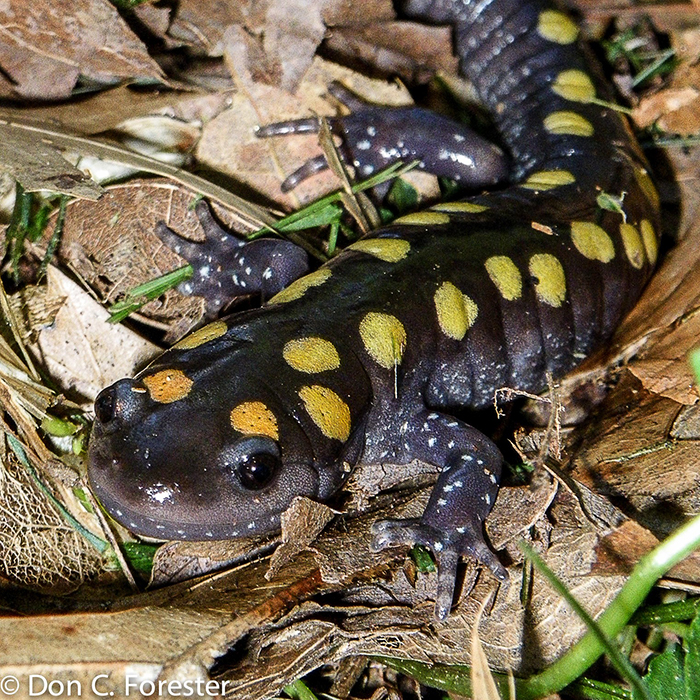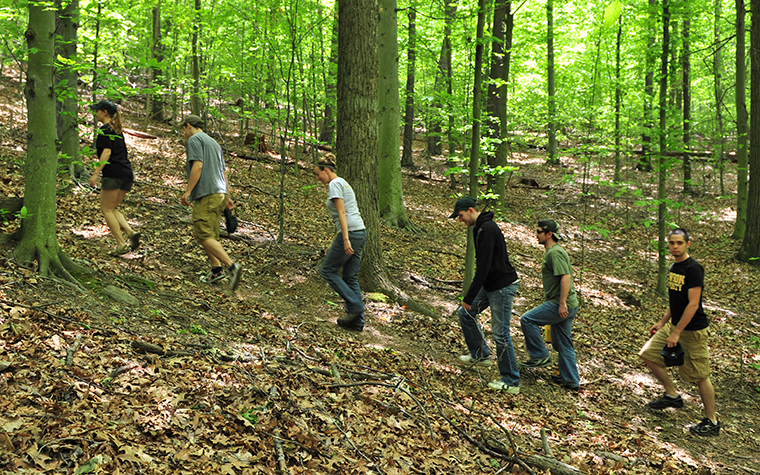
Spring Is Coming
Spotted salamanders are emerging from their long sequester in the labyrinth of shrew and rodent burrows beneath the woodland slopes, where they have patiently waited out the harsh winter.
Since its establishment in 2010 through a partnership with Al Henneman ’66 and his wife Suzie Henneman, the Towson University Field Station has provided a place for faculty and students to investigate and research the natural world.

Located on 223 wooded acres in northern Baltimore County, the TU Field Station is adjacent to the Gun Powder Falls State Park and is protected from development by a conservation easement. This makes the area one of the largest natural preserves in central Maryland.
The property includes forested uplands and a floodplain adjacent to the Gunpowder Falls River. A permanent wetland has been created at the interface between the uplands and the floodplain, creating an extensive aquatic habitat known as Bosquedor Slough. This natural impoundment supports an impressive list of aquatic plants and animals. The steep ridge above the floodplain rises to an elevation of more than 620 feet above sea level, making it one of the highest points in Baltimore County.
As an academic resource for Towson University, the TU Field Station is used for field trips and as an outdoor laboratory for student and faculty research. Classes that have used the Field Station as a resource include:
To support long-term ecological research, the Jess & Mildred Fisher College of Science & Math has funded the construction of eleven 100-square-meter fenced plots called deer exclosures. Each plot is paired with an adjacent, unfenced control plot.
Throughout the year Towson scientists and students monitor the plots to determine the impact that deer browsing has on the forest vegetation, leaf litter, soil invertebrates and salamanders.
A portable weather station was installed in 2014 to enable TU scientists to monitor the influence of climate change on the health of the forest ecosystem. There are also plans to study honeybee populations as well as dung beetles.
Visits to the TU Field Station are by appointment only. To make a reservation to visit or use the TU Field Station for coursework or research, please contact Don C. Forester at DForester AT_TOWSON.
If you would like to support the Towson University Field Station, please consider making a gift and designating it to Towson University Field Station (14890).